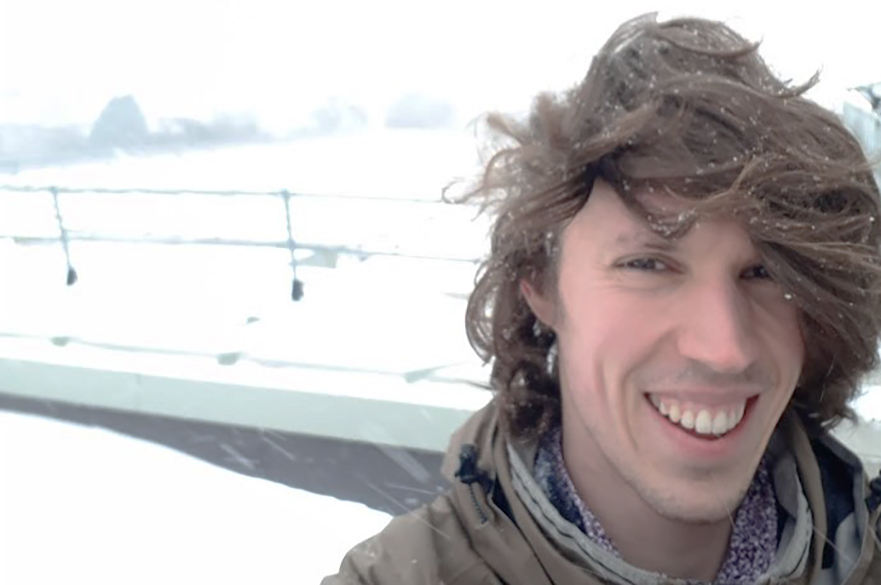Role
Dr Thomas (Tom) Stanton is a lecturer in Environmental Science and freshwater scientist in the School of Animal, Rural and Environmental Sciences. Tom's research focusses on the prevalence and impacts of plastic and microplastics, and their alternatives (e.g. natural fibres), in the environment.
Tom is an avid science communicator who has written for The Conversation and presented his research at multiple public science festivals and lectures including for Pint of Science, PubhD, The Papplewick Water Education Trust and the University of Nottingham's annual Science Public Lecture Series.
He is currently module lead for :
- CCMT10311 Principles of Environmental Science
- CCMT10416 Introduction to Earth Science
- CCMT20500 Law and Policy
He contributes to teaching on the modules:
- CCMT20412 Environmental Monitoring and GIS
- CCMT30422 Marine and Coastal Ecology UK Field Course
- CCMT30332 Marine and Freshwater Ecology
- GEOG11725 Introduction to Global Environmental Issues
- ARES40001 Conservation Priorities
Career overview
Dr Stanton completed his undergraduate and postgraduate degrees in the School of Geography at the University of Nottingham, completing a BSc (Hons) in Geography (2015), MRes (2016) and PhD across the School of Geography and Department of Chemical and Environmental Engineering (2020). Tom's MRes and PhD documented the presence of microplastic and natural textile fibres in freshwater catchments and included the development and refinement of methods to collect and analyse microplastic particles in environmental samples.
Following his PhD, Tom completed a UKRI funded Science and Policy postdoc, developing the impact of his PhD research beyond academia. This included the writing of a policy brief and articles for The Conversation.
Tom is a Fellow of the Higher Education Academy and scientific advisor to Planet Patrol.
Research areas
Dr Stanton's research interests span:
- The occurrence and impacts of plastic microplastic pollution in the environment
- The occurrence and impacts of plastic alternatives (particularly natural textile fibres such as cotton and wool) in the environment
- Water quality
- Chemical pollutants in the environment
- Public, industry, and political perceptions of pollution
- Greenwashing
External activity
- Fellow of the Higher Education Academy
- Scientific advisor to Planet Patrol.
Publications
- Stanton T., Kay, P., Johnson, M., Chan, F., Gomes, RL., Hughes, J., Meredith, W., Orr, HG., Snape, C., Taylor, M.,Weeks, J., Wood, H., Xu, Y. (2020). It’s the product not the polymer: rethinking plastic pollution. WIREs Water. e1490
- Stanton, T., Johnson, M., Nathanail, P., MacNaughtan, W. and Gomes, R. (2020). Freshwater microplastic pollution varies through both space and time. Environmental Pollution. 263(Part B), 114481
- Stanton, T., Johnson, M., Nathanail, P., Gomes, R., Needham, T., Burson, A. (2019). Exploring the Efficacy of Nile Red in Microplastic Quantification: A Costaining Approach. Environmental Science and Technology Letters. 6(10), 606-611.
- Stanton, T., Johnson, M., Nathanail, P., MacNaughtan, W. and Gomes, R. (2019). Freshwater and airborne textile fibre populations are dominated by ‘natural’, not microplastic, fibres. Science of The Total Environment, 666, 377-389.
- Xu, Y., Chan, FKS., Stanton, T., Johnson, M., Kay, P., He, J., Wang, J., Kong, C., Wang, Z., Liu, D. and Xu, Y. (2021). Synthesis of dominant plastic microfibre prevalence and pollution control feasibility in Chinese freshwater environments. Science of the Total Environment. 146863
- Xu, Y., Chan, FKS., He, J., Kay, P., Gibbins, C., Johnson, M., Stanton, T., Xu, Y., Li, G., Feng, M., Paramor, O., Yu, X. and Zhu, Y. (2020). A critical review of microplastics pollution in urban freshwater environments and legislative progress in China: recommendations and insights. Critical Reviews in Environmental Science and Technology.
